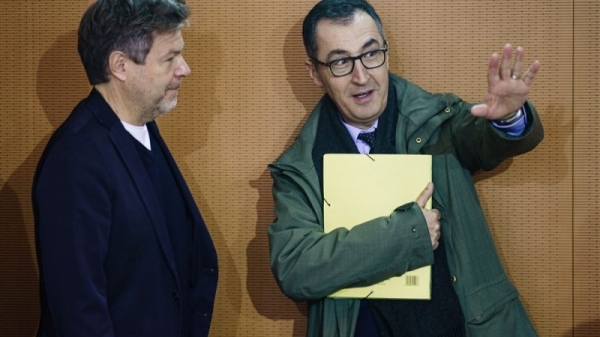Germany champions Mercosur deal despite agriculture woes

While several EU countries and many in the agricultural sector are critical of the planned EU-Mercosur agreement, the German government has proven a champion of the trade deal in hopes of achieving sustainability through cooperation.
After reaching a standstill in 2019, discussions about the contentious free trade agreement between the EU and the four Latin American Mercosur countries gained traction again when Socialist Luis Inácio Lula de Silva defeated right-wing populist Jair Bolsonaro in the October 2022 elections, becoming Brazil’s president.
Since then, Berlin has been leading the push to drive things forward.
This week, German Economy and Climate Minister Robert Habeck and Agriculture Minister Cem Özdemir embarked on a six-day trip to South America with a business delegation to further trade and sustainability.
This comes after a visit to South America by Chancellor Olaf Scholz earlier this year, who called for swift progress on the agreement.
Agriculture worries
For Berlin, free trade and environmental protection can complement each other and should be based on strong sustainability cooperation between the EU and the four Mercosur countries, Paraguay, Uruguay, Brazil and Argentina.
“More sustainability and a strategic strengthening of our trade relations – with the Mercosur agreement, we have the opportunity that both go hand in hand,” Özdemir said.
Speaking on public TV on Wednesday, the Green minister also pointed out that the current draft deal sets strict quotas for agricultural imports to the EU. The impact on domestic agriculture, he argued, would thus be minimal.
Others, however, are less convinced.
For many in the EU farming sector, opening up to a set of countries that are big agricultural exporters could mean the market is flooded with cheaper foodstuffs produced abroad without adhering to EU standards.
In the view of the EU farmers’ association Copa-Cogeca, the draft agreement currently on the table does not contain sufficient provisions to tackle the problem.
Speaking to EURACTIV, the association’s Secretary General, Pekka Pesonen, pointed to the fact that the situation in the EU agriculture sector has changed since the political agreement was reached in 2019 and argued this has not sufficiently been taken into account – especially with a view to sustainability standards.

Portugal hopes Spain will focus EU trade on ‘Atlantic side’
Spain taking over the EU Council presidency in July could create “new momentum” for EU trade policy, particularly with regard to the trade agreements with Mexico, Chile and Mercosur, Portuguese Prime Minister António Costa said on Wednesday.
At the closing …
France, Austria are pushing back
With EU flagship initiatives like the Farm to Fork Strategy or the Green Deal, he argued, “EU farmers are expected to make significant investments on farm level towards increased sustainability, something that the EU cannot impose on the producers in Mercosur countries.”
Several EU countries share the sector’s worries.
Speaking at the Paris Agricultural Show in February, French President Emmanuel Macron positioned himself against those who “want to resume negotiations.”
Austria, meanwhile, has submitted a note on the “agricultural implications” of the agreement ahead of Monday’s (20 March) EU agriculture ministers’ meeting, expressing criticism of the deal.
The paper argues that the agreement, for which negotiations started in 1999, is not state of the art and that more recent trade deals found more “modern” ways to incorporate sustainability standards.
Most recently, the EU-New Zealand agreement struck in June 2022 saw trade partners agree to follow internationally recognised environmental and social standards and was hailed as an example for future trade deals.

New Zealand minister: Trade deal with EU set global example on sustainability
The sustainable food system chapter in the recently signed EU-New Zealand trade agreement should become an example for the rest of the world, New Zealand’s agriculture and trade minister Damien O’Connor told EURACTIV.
Mirror clauses
In the view of France and Austria, one way to ensure a level playing field between domestic and South American producers is to introduce mirror clauses, or reciprocity clauses, that is, to apply the production standards in place at home to imports as well.
“It’s not about being for or against Mercosur. The question is what reciprocity clauses are in the agreement,” French agriculture minister Marc Fesneau told news agency Reuters in February.
However, for Bernd Lange, chair of the European Parliament’s international trade committee, including such provisions in the Mercosur agreement at this point is not feasible. “There will for sure not be any mirror clauses – this much is clear,” he told EURACTIV in an interview.
The European Commission aims to conclude the Mercosur agreement with Brazil, Argentina, Uruguay and Paraguay during the second half of this year.

Stricter animal welfare rules should apply to imports, EU ministers say
If the EU raises the bar on animal welfare for livestock farmed within the bloc, equivalent rules must be applied to imported products to keep domestic producers competitive, several national ministers have warned.



